- Home
- Michael Swanwick
The Year's Best Science Fiction (2008 Edition) Page 12
The Year's Best Science Fiction (2008 Edition) Read online
Page 12
“This place makes a lot of lists of scenic wonders,” Léoa said. She knelt at the meter-high shrine that interrupted the rails of the observation platform, palms together in the ancient prayer gesture. The stalkers closed in on her.
He did the same, to avoid her stalkers’ recording him being disrespectful.
When Thorby and Léoa stood, and looked again across the stormy snowfields of Korolev Crater, the stalkers leaped up on the railing like an abstract sculpture of birds on a wire, balancing easily with their gyros. Thorby and Léoa de-opaqued their helmets completely and turned on collar lights. “It doesn't bother you,” she asked, “that these snow fields were here before the first human wandered across the African plain?”
“No,” he said. “After all, the protons and electrons in the snow were probably in existence shortly after the Big Bang. Everything is made of bits of something older. Everything that begins means something ends. I like to take pictures of the moment when that happens. A day will come when we walk by Lake Korolev and admire the slow waves rolling across its deep blue surface, and then another day will come when this stupa stands on one of the islands that ring Korolev Atoll, and very much within our lifetime, unless we are unlucky, this will be an interesting structure at the bottom of the Boreal Ocean. I hope to see them all; life is potential and possibility.”
“That was very preachy,” she said, “and you kind of intoned. Do you want to try it again?”
“Not really. Intoning feels right when I'm serious. I like things that will happen once, then never again. That's what my problem is with the animators that make their perfect simulations; they never take a chance on not getting what they're after. Be sure to use that. Let's get some animators good and angry.”
“They don't get angry,” she said sadly. “Nothing's real to them.”
He shrugged. “Reality is just a marketing trophy anyway. Twenty thousand years from now, if people want to walk around on a dry, thin-aired, cold Mars, they'll be able to do it, and it will look so much like this that even a trained areologist won't see the difference. Or if they want to watch the disassembly of Boreas a hundred times, and have every time be as subtly different as two different Tuesdays, they'll be able to. Your recording of what was, and my recording of how it changed, will just be two more versions, the ones with that odd word ‘real’ attached.”
“Attached validly. If reality doesn't matter, why do animators try to fake their way into having their work labeled ‘real’ all the time? It's the only thing they do that makes me really angry.”
“Me too.” He could think of nothing else to add. “Catch the gliderail?”
In the half-hour zip around to the north side viewing station, they sat on the top, outside deck. Their stalkers shot them with the crater in the background. It was noon now, and the early spring sun was still low in the sky to the south.
On firm ground, in a Mars suit with robot porters to do all the carrying, a human being can cover about a hundred kilometers in a day without difficulty. Since the country they were crossing was ancient sea bottom (that was the point of everything, really), it would be flat and hard for the next couple of hundred kilometers before the Sand Sea. They could have just taken a hop-rocket to some point in the vast plain, claimed to have walked there, recorded their conversation, and then hopped another hundred kilometers or so to the edge of the Sand Sea, but they were the two most prominent documentarians of the realist movement.
Visually it was monotonous. They had planned to use the long walk to spar for quotes, but there was little to say to each other. Léoa documented places that were about to be destroyed in the Great Blooming; Thorby recorded the BEREs, Big Energy Release Events, the vast crashes and explosions that marked humanity's project of turning the solar system into a park and zoo. They were realist-purists, using only what a camera or a mike could record from the real world. Unable to do anything except disagree or agree completely, they tried arguing about whether a terraformed planet can have wilderness, since the life on it was brought there and the world shaped for it, and about whether it was masculine to like to see things smashed and feminine to like to see things protected, and they agreed that animation had no place in docu, all in the first hour.
For a while she fished for him to tell stories about his brief moment of fame, as the teenager who rode his bicycle around a comet, but he didn't feel like telling that story during that hike, though he did promise to tell it eventually. It wasn't that he minded, it was only that the good-parts version came down to no more than four or five sentences for anyone else, and to inchoate, averbal images for Thorby.
By noon the first day, there was nothing to do but walk and look for something worth recording, or an argument worth having. They walked two more days.
* * * *
The Sand Sea was no more conversational, but it was beautiful: an erg that stretched to the horizon, dune after dune in interlocking serpentines stretching for hundreds of kilometers in all directions. From orbit the regularity of the pattern of dune crests was remarkable, but from the dune crests, where they skied, it was busy and confusing like a choppy sea. Down between the dunes it was just piles of sand reaching to the sky on all sides.
They hadn't spoken in hours. Léoa didn't even ask him if he felt sad that all this would be converted to a mud flat and then drowned under three kilometers of water. He couldn't work up the energy to needle her about protecting a pile of dust the size of France, so that future generations could also visit a pile of dust the size of France.
They went slowly for the last day, as Léoa got visuals of the Sand Sea. She had built her reputation on doomed landscapes; this would be the biggest to date.
Thorby was sitting on top of one of the immense dunes, watching the sunset and talking his notes to one of his stalkers, planning the shooting of the Boreas-pass above the North Pole. He felt a low vibration, and his suit exmike, which had only supplied a soft whisper for days, reverberated with deep bass notes, something between a tuba and a bell, or a choir of mountains.
The dune under him heaved like an ocean wave waking from a long sleep, and he tumbled over, rolling and sliding in a bewildering blur of dust and sky, halfway down the western, windward face before sliding to a halt. The slipping dust piled around him, starting to pin him to the ground.
He pushed up to his feet, and stepping high, climbed back up the dune. It was more than a minute, while the pure tones of the bass notes in his exmike became a continuous thunder of tympani, before he struggled back to the top. The sun was less than a finger-width above the short horizon, and the light would disappear in minutes, the smaller solar disk and short horizon of Mars reducing twilight to an instant.
The thunder was still loud, so he clicked up the volume on his radio. “Are you all right?”
“Far as I can tell. It buried me to my waist but I got out.” He picked out Léoa, climbing the leeward slope far below. “Booming sands,” she said. “One of the last times they'll ever do it. The resonance trips off more distant dunes, one dune triggering another by the sounds, till all the dunes with those frequencies have avalanched and added to the din. There's a scientist I met who sowed microphones all over the polar sea and he could show you maps of how the booming would spread from dune to dune, all over the Sand Sea in a couple of hours. And all that will be silent forever.”
“Silent as the Boreal Ocean is now,” he said, mindful that their recording mikes were still on and so was the sparring match. All round them, stalkers were finding their way back to the surface, usually stalk first so that they rose like slim reeds from the ground until they suddenly flipped over, spun to clear the dust from their scoop shaped audio pickups, and resumed hopping through the sand like mouse heads on pogo sticks, normal as ever. “There was a time to hear the sands, and there will be a time to hear the waves. And in between there's going to be some of the grandest smashing you ever saw.”
She must not have had a good reply, or perhaps she just didn't want to reply to his into
ning again, because she got back to her setup, and he got back to his.
The Mars suits shed the fine dust constantly, so that Léoa seemed to smolder and then to trail long streaks as the wind shifted during the few seconds of twilight. They finished under the stalkers’ work lights, and lay down to wait on the soft lee of the dune, safe now because it had just avalanched.
“Thorby,” she said, “this is not turning into anything that will make either of us famous.”
He hunched his shoulders, shaping the fine sand under him. “You're right,” he said. “It's not.”
“You've already been famous.”
“It's one of those things you can't experience while it's happening,” he said, “like seeing yourself across a crowded room. Not all that it's cracked up to be. I like making docus and I like selling them, so that kind of ‘where is he now’ fame doesn't hurt, and it's far enough in the past so I mostly get left alone.” He watched Phobos, far south in the sky; from these far northern latitudes you never saw it full, always as a lumpy sort of half-moon.
“If a model or a musician had taken a tumble in booming sands it would sell systemwide, but if we got stranded out here and you killed and ate me to survive, it would barely show up. Docus are what, half a percent of the market? There's not even a market in pirating them.” Léoa sighed. “I was just thinking that the mainstream celeb channels haven't even mentioned that the two leading documentarians of the realist-purist movement are here to record the biggest event of the next few hundred years of the Great Blooming, the re-creation of the Boreal Ocean. Not even to mention that we've always feuded and we purportedly hate each other. Not even to do one of those ‘Will they reconcile and have sex?’ stories they like so much. Not even to mention that one of us is the teenager who took the longest bicycle ride in history. Yet two years ago they covered the fad for learning to hand-read, and a couple guys in the retro movement that produced written books—can you believe it, written books, just code, that stuff people used to hand-read—and they covered a blacksmith last year, but docus are so dead, they didn't bother with us.”
“We're not dead enough. Gone but not long enough or completely enough to be a novelty.” He tried to decide whether he could actually see Phobos crawling along eastward, down by the equator, and decided he could. “Maybe we should have the blacksmith build us chariots, and race each other, and do a documentary about that.”
“Maybe.” The scratchy sound in her radio puzzled him till he saw her rolling over; she was looking for a comfortable position on the dune, and he was hearing her Mars suit pushing dust away.
“Hey,” he said. “Since you've been trying to get me to miss something, I just noticed something I will miss. Phobos. I like the way it looks from this far north.”
“Well, I'm glad something can touch your heart. I'd have thought you were excited about getting to see it fall.”
“It won't be much of a show. Phobos'll be busted to gravel from all the impacts as it comes down through the rings, so it won't really be a BERE, just a month-long high point in the spectacular meteor shower that will go on for fifteen Mars-years or so. I wasn't even going to bother to shoot it. But what it is right now—I never realized it's always a half-moon up here in the far north, because it's so close to the equator and so low in orbit, and besides, it's fun just to watch it, because it's so low it orbits really fast, and I'm thinking I can see it move.”
“I think I can too.” She commanded her stalkers to set up and record the view of Phobos, and then to get the two of them with Phobos behind them as they sat on a dune. “Those shots will be beautiful; so sad though that stories about Great Blooming projects are about as popular as public comment requests by the Global Desalination Authority.”
He shrugged, hoping it would show up on the stalker's cameras. “Post scarcity economy, very long life spans, all that. Everything to do and nothing matters. Story of everyone's life. Have you thought about doing anything other than docus?”
“I try not to. I want to get the Great Blooming recorded, even if I call it the Great Vandalism or Bio-Stuff Imperialism. Somebody has to stand up for rocks, ice, and vacuum.”
“Rocks make okay friends. They're dependable and loyal.”
“I wish somebody wanted to watch us talking to each other,” Léoa said. “About all this. About Mars and about the Blooming and all that stuff. I almost wouldn't care what we had to say, or how things came out, if somebody would just find us interesting enough to listen. You know what I mean.”
“Yeah.” Thorby didn't really feel that way himself but he often didn't know what he felt at all, so he might as well agree.
They began final checkout just a few minutes before Boreas's first aerobraking pass. The stalkers were self-maintaining, and they were already in place, but it felt wrong to just assume everything would work.
“This will be one of your last views of your home,” Léoa said. “How do you feel about that?”
He turned toward her, flipped the opaquing on his helmet to zero, and turned up the collar lights, so that his face would be as visible as possible, since this was an answer he knew he needed to get right. Already the northern horizon was glowing with Boreas-dawn. “Boreas is where I grew up, as much as I ever did, but that doesn't make it home,” he said. “First of all when I lived there you couldn't walk on most of it, anyway, and they weren't going to let a little boy put on a suit and go play outside. When I went back four weeks ago, all that melting and vaporizing that went on while Boreas worked its way down to the lower system had erased even the little bit of landscape I did know; I couldn't even find Cookie Crumb Hill on radar and thermal imaging, and anyway if I'd found it, it's so dark down there now, with all the fog and grit flying around, that I doubt I could have gotten pictures that penetrated more than twenty meters into the mess. The Boreas I knew when I was a kid, way out beyond Neptune, is more than a decade gone; it's nothing like it was. Nothing at all.”
He was crabbier in his tone than he had meant to be, irritated by her question because he'd blown half his share of the budget to buy passage to Boreas so that he could come back with the seven scientists who were the last evacuated from the iceball's surface, and what he'd gotten had been some lackluster interviews that he could as easily have done a year before or a year after. Furthermore, since the station had not had windows, he could have done them somewhere more pleasant. He had also acquired some pictures of the fog-and-grit mix that now shrouded what was left of the old surface. (Most of the old surface, of course, now was fog and grit).
As Boreas came in over the North Pole, it would swing low enough for atmospheric drag, which, combined with the gravitational drag from coming in an “inverse slingshot” trajectory, should put it into a very eccentric, long orbit around Mars. Doing this with a big natural ball of mixed water ice, carbon dioxide, and frozen methane, with a silica-grit center, was so uncertain a process that the major goals for the project began with “1. avoid impact by Boreas, 2. avoid escape by Boreas.”
But if all went well, nudgers and roasters would then be installed on Mars's new huge artificial moon, with the objective of parking it in a nearly circular retrograde orbit below Phobos, well inside Mars's Roche limit, so that over a few years, Boreas would break up and form a complex of rings. The billions of bits of it, dragged and shredded by the planet's rotation, would then gradually spiral in across twenty years, creating a spectacular continual meteor shower in the plane of the ring, a carbon dioxide/methane atmosphere at about a bar of pressure, and, as water vapor snowed down, then melted, then rained and ran to the lower parts of the planet, a new ocean in the bed of the dry-for-a-billion-years Boreal Ocean.
The comet's pass would light the sky for many hours, but its actual brush with the atmosphere would last less than three minutes. Thorby and Léoa intended to be directly underneath it when that happened.
“Did you leave anything on Boreas, a memento to be vaporized onto Mars?” she asked.
He started to say, “No.”
She picked up her walking stick and knocked off the head of one of his stalkers.
Startled speechless for an instant, he didn't speak or move till she whacked the second one so hard that its head flew in pieces into the sand.
“What are you—”
“Destroying your stalkers.” Her voice was perfectly calm and pleasant as she whacked another stalker hard enough to break its stem in half, then drove the tip of her stick down on its head. “You won't have a record of this. And mine will only be recording your face and appearance. You've lost.”
He thought lost what? for an instant, and then he wanted to rush to see if Number Four stalker, which had been with him for twenty-five years, was all right because it was crushed and he couldn't help thinking of it as “hurt,” and then he wanted to scream why?
The landscape became brighter than day, brighter than Earth lightning, not at all like the Boreas-dawn they had been expecting. A great light flashed out of the north, and a breath later a white, glowing pillar pushed up into the sky. They froze, staring, for some indefinite time; his surviving stalkers, and all of hers, rotated to face the light, like clockwork sunflowers.
Thorby heard his voice saying, “We'll need to run, south, now, as fast as we can, I don't think we'll make it.”
“Must have been a big fragment far out from the main body,” Léoa said. “How far away do you think—”
“Maybe up close to the pole if we're lucky. Come on,” he said, “whistle everything into the porters. Skis on. Run.”
Two of his stalkers had not been destroyed, and they leaped into his porter at his emergency call. “Skis and poles,” he told the porter, and it ejected them; he stepped onto the skis, free-heelers designed for covering ground and moving on the slick dust, and hoped his few hours practice at a comfortable pace in the last day would be enough to let him go fast now.

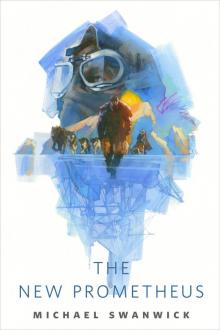 The New Prometheus
The New Prometheus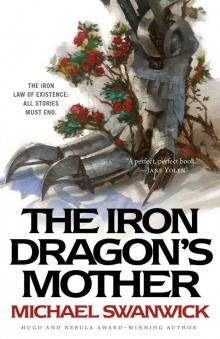 The Iron Dragon’s Mother
The Iron Dragon’s Mother The Mongolian Wizard Stories
The Mongolian Wizard Stories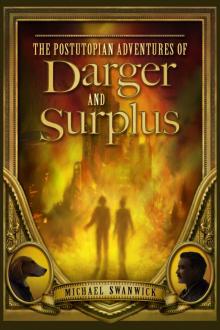 The Postutopian Adventures of Darger and Surplus
The Postutopian Adventures of Darger and Surplus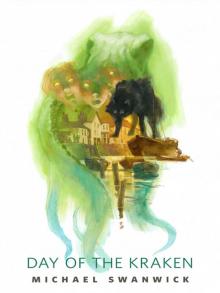 Day of the Kraken
Day of the Kraken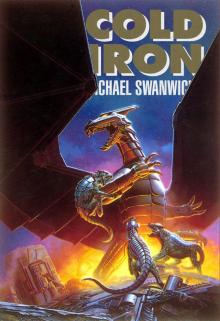 Cold Iron
Cold Iron Murder in the Spook House: A Tor.com Original
Murder in the Spook House: A Tor.com Original Radio Waves
Radio Waves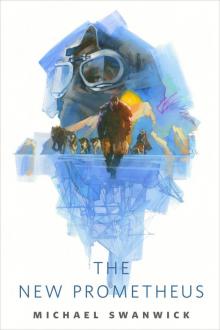 The New Prometheus: A Tor.com Original
The New Prometheus: A Tor.com Original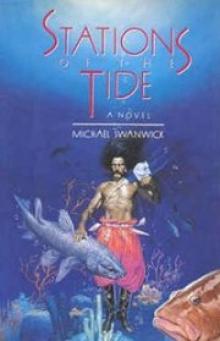 Stations of the Tide
Stations of the Tide Vacuum Flowers
Vacuum Flowers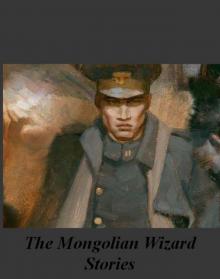 The Mongolian Wizard Stories (online stories 1-7)
The Mongolian Wizard Stories (online stories 1-7)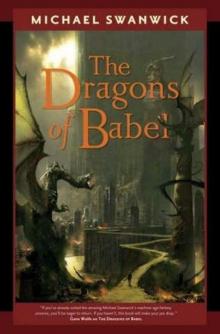 The Dragons of Babel
The Dragons of Babel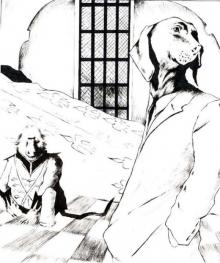 The Dog Said Bow-Wow
The Dog Said Bow-Wow Griffin's Egg
Griffin's Egg The Best of Michael Swanwick
The Best of Michael Swanwick Not So Much, Said the Cat
Not So Much, Said the Cat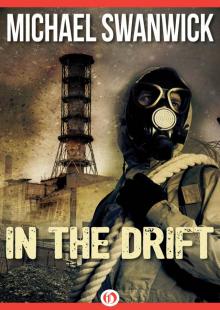 In the Drift
In the Drift Vacumn Flowers
Vacumn Flowers Slow Life
Slow Life The Wisdom Of Old Earth
The Wisdom Of Old Earth Legions In Time
Legions In Time Scherzo with Tyrannosaur
Scherzo with Tyrannosaur The Year's Best Science Fiction (2008 Edition)
The Year's Best Science Fiction (2008 Edition)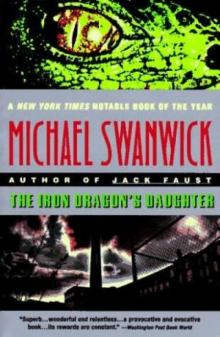 The Iron Dragon's Daughter
The Iron Dragon's Daughter The Very Pulse of the Machine
The Very Pulse of the Machine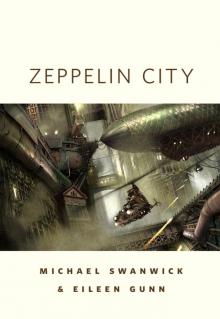 Zeppelin City
Zeppelin City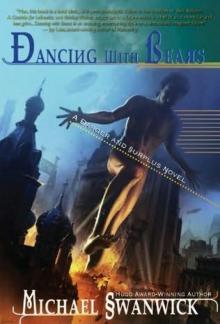 Dancing with Bears
Dancing with Bears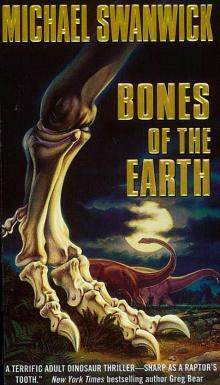 Bones of the Earth
Bones of the Earth Tales of Old Earth
Tales of Old Earth Trojan Horse
Trojan Horse Radiant Doors
Radiant Doors